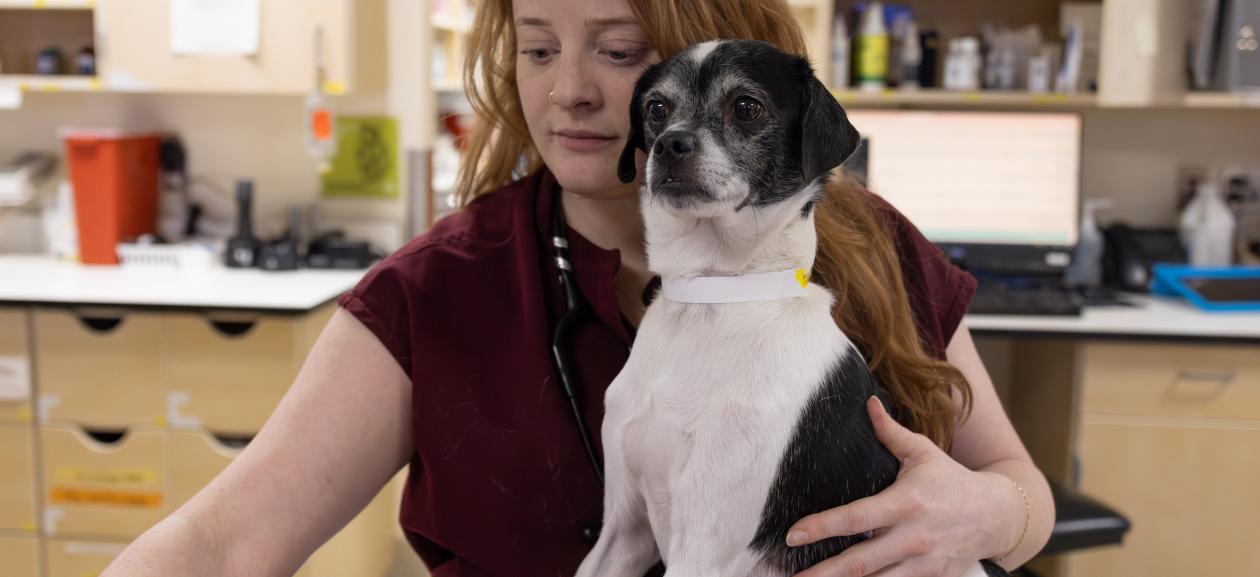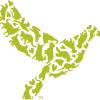
What's on the Menu? Human Foods Dogs Can and Can't Eat
We all know those big puppy eyes watching us every time we eat are hard to resist. Sharing a bite with our dogs can feel like a loving gesture, but not all human foods are safe for dogs. To help keep mealtime safe and fun for everyone, let's dive into what human foods dogs can eat and which ones they should avoid. Remember, treats should only make up about 10% of your dog’s overall diet to ensure they're getting the proper nutrition they need from their regular meals.
Safe Snacks: Human Foods Dogs Can Eat
1. Carrots
Chewing on carrots can be good for dogs. They offer dietary fiber, vitamin A, and are low in calories. Plus, munching on these crunchy veggies can help keep your dog's teeth clean. Although carrots are quite nutritious, they should be given to your dog in moderation as a special treat!
2. Apples
Apples are an excellent source of vitamins A and C, and fiber, and they can even help clean residue from a dog's teeth, freshening their breath in the process. However, it's important to feed apples in moderation to avoid upsetting your dog's stomach.
Be sure to remove the apple seeds before offering any to your dog, as they contain a small amount of cyanide, which is toxic and potentially harmful in large doses. The tough core and stem of the apple also pose a choking risk. If your dog does ingest the core or seeds, keep a close eye on them for any signs of digestive distress or blockage.
3. White Rice
Cooked white rice, when served plain without any seasonings, is excellent for dogs with an upset stomach because it's easy to digest and can help firm up their stool. However, similar to humans, consuming too many carbohydrates can contribute to weight gain in dogs. Therefore, it's important to include white rice in your dog's diet only occasionally or as needed.
4. Chicken
Plain, cooked chicken is a great meal replacement or supplement in times when your dog is feeling under the weather. It should be prepared without any seasoning, oils, or onions to ensure it's safe for your pet and serves as a good source of protein. However, some dogs may have allergies to chicken, so it's important to be aware of any adverse reactions. Additionally, always remove the chicken from the bone before serving, as cooked chicken bones can splinter and pose a risk of choking or puncturing the gastrointestinal tract.
5. Turkey
Just like chicken, plain turkey is generally safe for dogs to eat when it's properly prepared. Ensure that the turkey is thoroughly cooked and free from any garlic, onions, or heavy seasonings, which can be harmful to dogs. It's also important to remove the skin before feeding turkey to your dog, as it is high in fats that can lead to pancreatitis or other digestive issues.
Additionally, always ensure that no bones are included when serving turkey. Cooked bones can splinter and pose serious health risks such as choking or intestinal damage.
6. Peanut Butter
Unsalted and unsweetened peanut butter is a fantastic source of protein, heart-healthy fats, vitamin B, niacin, and vitamin E. When selecting peanut butter for your dog, make sure it does not contain xylitol, a sweetener that is toxic to dogs. Peanut butter can be used as a long-lasting treat when spread inside toys, or as a quick reward when offered from a spoon or finger. However, due to its high-calorie content, it's important to give peanut butter in moderation. A small amount goes a long way!
7. Oranges
Oranges are fine for dogs to eat in small quantities like one or two segments a day. They are a good source of vitamin C, potassium, and dietary fiber, which can contribute positively to your dog's diet. However, oranges also contain a significant amount of sugar, which is why they should be offered only as an occasional treat. Feeding your dog too many oranges can lead to an excess intake of sugar, potentially causing weight gain or affecting their blood sugar levels.
Additionally, the citrusy acid in oranges might upset some dogs' stomachs, especially if consumed in large quantities. Always remove the peel and seeds, as these can be hard to digest and might cause intestinal blockage.
8. Spinach (with an important note)
Spinach can be a healthy snack for dogs, packed with vitamins A, B, C, K, iron, antioxidants, and fiber. However, spinach also contains oxalates, which can interfere with calcium absorption and may harm the kidneys if consumed in large quantities. While dogs can eat raw spinach, it is somewhat difficult for them to digest. Additionally, boiling spinach can significantly reduce its nutrient content. Steaming spinach is the most effective method to preserve its vitamins and make it more digestible for dogs. Always consult your vet before introducing spinach into your dog's diet, even as an occasional treat.
Forbidden Foods: What to Avoid
1. Chocolate
Chocolate is well-known for being toxic to dogs. It contains theobromine and caffeine, which can be harmful and potentially fatal to dogs.
2. Grapes and Raisins
These can cause kidney failure in dogs. Even small amounts can make a dog ill, so they're best kept well out of reach.
3. Onions and Garlic
These kitchen staples can cause gastrointestinal irritation and could lead to red blood cell damage. It's important to note that symptoms might not appear immediately.
4. Xylitol
This sweetener is found in many products, including gum, candy, and some peanut butters. It can cause insulin release in most species, which can lead to liver failure in dogs.
5. Avocado
While not the most dangerous food, avocados contain Persin, which can cause diarrhea and vomiting in dogs.
Sharing Safely
When it comes to feeding your dog human food, moderation is key. Always introduce new foods gradually and in small amounts to monitor how your dog reacts. If you're ever unsure about a food's safety, consult your veterinarian. They can provide guidance based on your dog’s specific health needs and dietary requirements.
Remember, while it’s fun to spoil our pups, their health and safety come first.
If you suspect your pet may have come in contact with or ingested a potentially poisonous item, contact us at (503) 228-7281 or the ASPCA Animal Poison Control immediately at (888) 426-4435.
Recent Posts
Marijuana Toxicity in Pets: What You Need to Know
As availability of marijuana increases in the Portland area since legalization, so have the number of marijuana toxicity cases treated at DoveLewis. Our doctors warn pet owners of the potential risks to their dogs and cats if marijuana is ingested in any form.
Dog Bite Prevention Tips
Now more than ever, people are venturing outside with their pets to get fresh air. This is increasing the possibility of interactions with other dogs that can lead to bites and injuries. DoveLewis is sharing tips to help prevent this from happening so animals and humans can stay safe.
How to Build a Pet First Aid Kit
Every pet owner should have a pet first aid kit handy in case of an emergency. If you need to put one together, we’ve got you covered!




